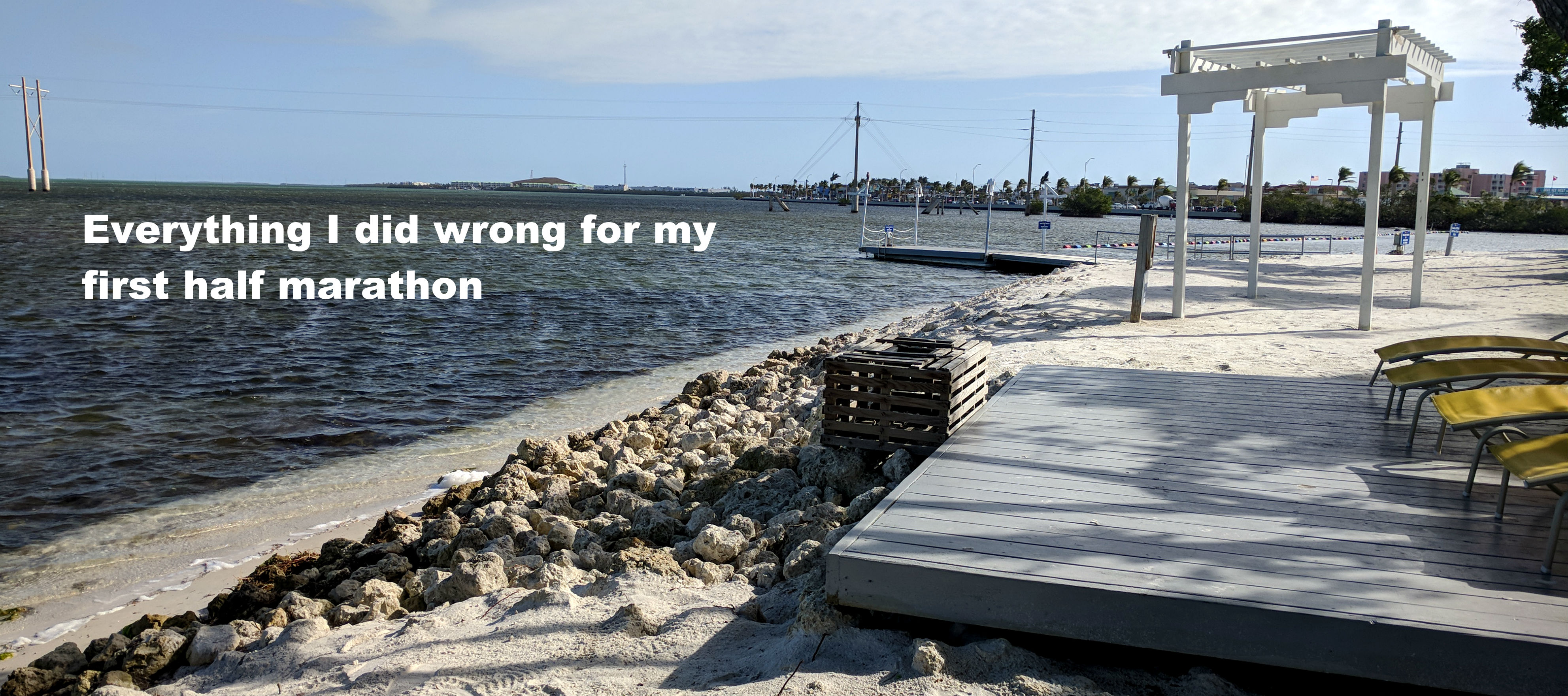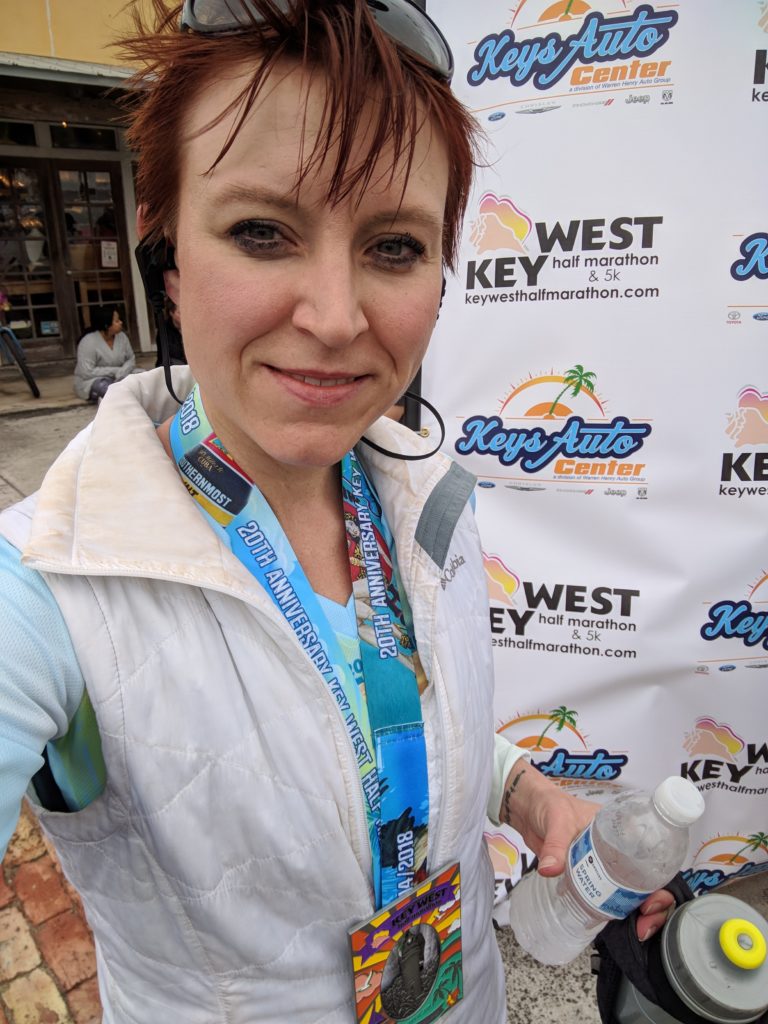So you’re thinking about signing up for your first half marathon. You’ve probably Googled it and found the same article I did: The one that tells you “if you can run 3 miles you can run 13.1.” I tried it and it’s true.
I just ran my first half marathon. By the standards of most of the advice I’ve read, it was a disaster.
And I highly recommend that if you’re a runner considering it: go for it.
You will learn a ton. You will challenge yourself. You will make mistakes. You will finish.
I loved having a running goal to work toward for a few months ahead of the event. I had some knee trouble and ended up having to walk about a mile of the race, but I’m counting it as a win both because I worked for it and because I finished — and I got a cool medal to prove it.
That said, if I do it again there are a few things I would do differently.
Here’s what I didn’t do right:
- Didn’t eat in the week leading up to the race. According to Runner’s World, I should have put on a little weight before a race of this length and eaten mostly lean protein. I ate cheese and crackers and little else (break-up food).
- Didn’t get a good night’s sleep the night before. (I was staying in a hostel — more on that later.)
- Didn’t have something warm to wear after the race. Although I was in Florida, my race was on a cold day and I ended up stuck at the finish line wearing my sweaty clothes and shivering. I wasn’t able to enjoy the party because I was so miserable.
- Didn’t give myself enough time at the start. I ate eggs egg before the race — not my own, but I got lucky and didn’t have any digestion issues — and walked from my hostel to the starting line (about a mile). But I didn’t leave myself enough time for both gear check and a bathroom break, much less to stretch or mentally prepare. I was still yanking extra clothes out of my bag (did I mention it was cold?) and pinning my number to my shirt with less than 5 minutes to go.
- Tried to build my endurance too fast. I only did this once, jumping from 7.5 to 10 miles in a week, but my body’s response set back my training a couple weeks.
- Didn’t worry about speed and paced myself early on in the race. (I was really slow, finishing at 2:36, but that gives me a lot of room for improvement next time!)
- Increased my yoga practice along with my running during training (mainly focusing on yin, or fascia-focused stretching).
- Started training several months before the race (the recommendation is 14 weeks; I had 12).
- Added leg rotator exercises to my regimen to strengthen my knee alignment.
- Increased my mileage gradually (by 1.5 miles per week) — for most of my training.
- Reduced my running speed/mileage for 2 weeks before the race.
- Planned ahead for things to listen to. I listened to podcasts the first half of the race (I had saved up several of my favorites) and fast music the second half.
- Invested in good shoes. This might go without saying but it’s worth it to get custom-fitted shoes at some point once you start running seriously — in my case stability shoes (specifically Brooks Ravenna 8).
- Signed up for a destination race. Your mileage may vary on this (ha) because it’s definitely easier to control related factors for a race on home turf, but it can be motivating to run somewhere new — and running in Key West in January is a lot more fun than running in Washington, D.C., where I live.
The conclusion is: All you need to run a half marathon is a) the ability to run a 5k and b) willpower.
No race — or training process — will be perfect. The whole point is the effort you put in.
Also, I recommend watching Run, Fatboy, Run for inspiration on breaking through “the wall” — and because nobody could approach a race as badly as this guy:


